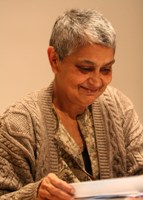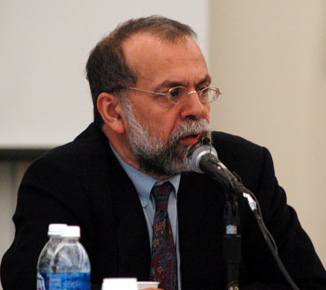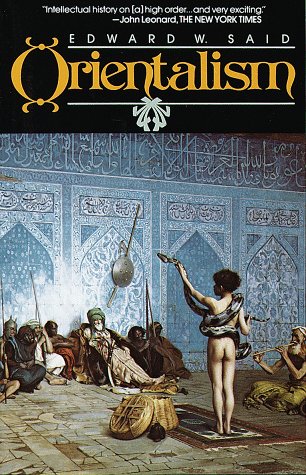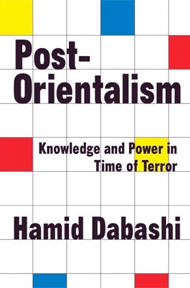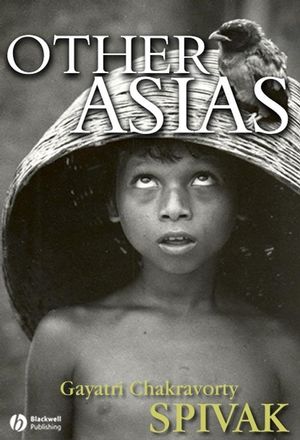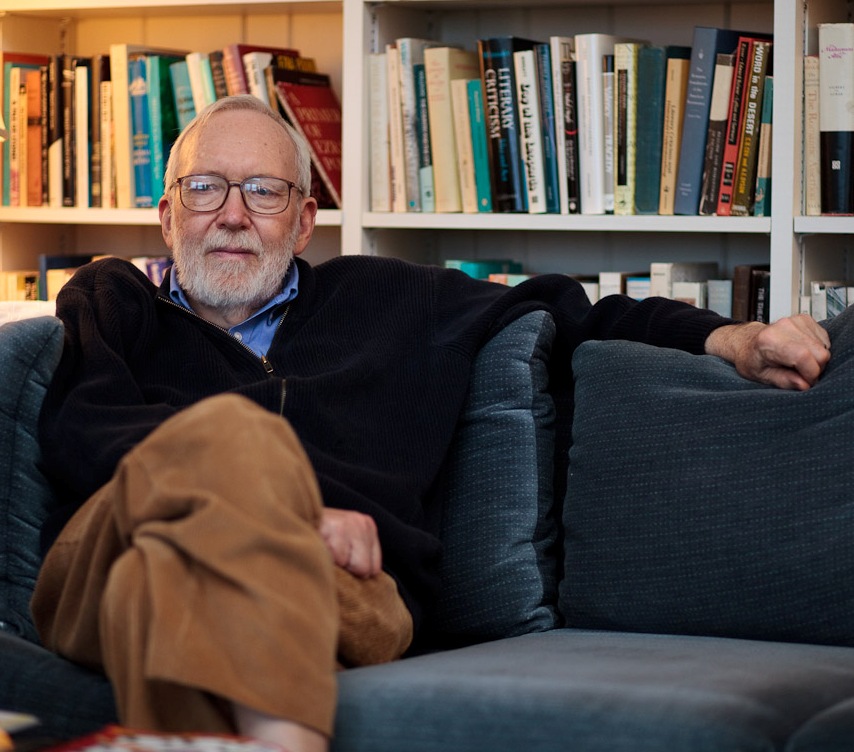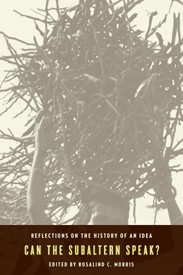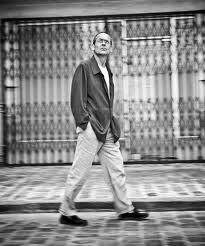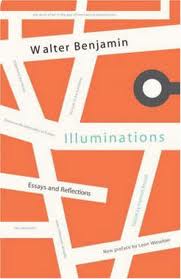ReOrientale: Rethinking Orientalism and/or Other Global Oddities
The Center for the Humanities, CUNY Graduate Center
Kyoo Lee, Associate Professor of Philosophy, John Jay College, CUNY FYI: NY Faculty Seminar in Asian American Studies
Faculty/Student Co-chairs
Seminar Description
Today, what do global cultures and philosophies look like from “other” points of view? What is post-Occidentalism, or what is Orientalism in this age of trans-national techno-capitalism? Focusing on the geo-cultural binary, “East/West” or “Orient/Occident,” which still stagnates most of socio-politically “deconstructive” or “re-territorialized” discourses such as post-colonialism, post-Anglo-Euro-centrism, post-democracy, post-racism, neo-conservatism, neo-Sino-centrism, etc., this seminar aims to foster cutting-edge cross-disciplinary dialogues that re-read and re-create the stories and theories about a world that consists of not only great walls but open gates.
Guest Speakers at the Seminar Sessions and the Other Related Public Events include:
Meena Alexander (English, Hunter College & The Graduate Center, CUNY)
Jennifer Bajorek (Cultural Studies, Goldsmiths College, University of London/Society for the Humanities, Cornell University)
Judith Butler (Rhetoric, University of California, Berkeley)
Patricia Clough (Sociology, Women’s Studies, Intercultural Studies, Queens College & The Graduate Center, CUNY)
Drucilla Cornell (Women’s and Gender Studies, Rutgers, the State University of New Jersey)
Hamid Dabashi (Iranian Studies and Comp Literature & Society, Columbia University)
J. Hillis Miller (Comparative Literature and English, University of California, Irvine; Photo by Jeremy Maryott)
Rosalind Morris (Anthropology, Columbia University)
Gayatri Chakravorty Spivak (English and Comp Literature & Society, Columbia University)
Bernard Stiegler (The Pompidou Center; Ecole de philosophie d'Epineuil-le-Fleuriel)
Robert Young (English, Comparative Literature, New York University)
THEME of 2011:
OTHER THAN EAST/WEST
Art, Again:
How does time relate to the production, collection, and circulation of aesthetic objects,
especially in this era of global techno-capitalism?
Join Bernard Stiegler, renowned French philosopher and Director of the Institut de recherche et d'innovation (IRI)
at the Centre Georges-Pompidou for a conversation about the material ontology of art and why it matters.
He will be joined by discussant Kyoo Lee (Philosophy, John Jay College of Criminal Justice).
They will explore inquiries such as, if “technics is unthought,”
as Bernard Stiegler argued in his field-defining trilogy, Technics and Time (La technique et le temps, I-III, 1994-2001),
how are we to rethink that technical “thing” along with its oddly self-destructive logic of industry?
And why do we continue to produce “stuff,” no matter what?
@ Tue Sep 20, 6:30pm, The James Gallery
CUNY Graduate Center
free/open to the public
Seminar V: Fri Apr 29, 4-6pm, Rm9207: with Drucilla Cornell
Cornell, "Rethinking Ethical Feminism Through uBuntu"
My paper reconsiders my concept of “ethical feminism,” in connection with the work of Gayatri Spivak and Judith Butler, in order to set a postcolonial framework in which to evaluate the significance for transnational feminism of the South African indigenous value of uBuntu. To do so, I explore first a famous case involving the status of living customary law in South Africa, to show that what is at stake in that case is not gender equality but respect for the law of the majority of the people. I argue that so-called “traditions” or “cultures” are not only not monolithic, nor even simply describable as sites of conflict: they are sources of a rich intellectual heritage that allow for transnational feminist alliances. To draw out the political and ethical significance of competing intellectual heritages in South Africa, I turn to an analysis of the biography of a lesbian Sangoma who played an active role before parliament in her advocacy of gay and lesbian marriage.
Drucilla Cornell is a professor at Rutgers, the University of Pretoria, and Birckbeck College at the University of London. For the last nine years, she has run a project in South Africa called “the uBuntu Project.” From 2007 to 2010, she held the National Research Foundation Chair entitled, “Customary Law, Indigenous Values, and the Dignity Jurisprudence,” sponsored by the University of Cape Town. Her last two books are, Clint Eastwood and Issues of American Masculinity and Symbolic Forms for a New Humanity: Cultural and Racial Reconfigurations of Critical Theory.
Please register through the Center for the Humanities to access the reading material.
Seminar IV: Tue Mar 22, 10am-12pm, President's Conference Room: with J. Hillis Miller
Miller, "Why Read or Teach Literature Now?"
The question in the title can be given an ethical turn. Do we have a responsibility read and teach literature now? Does an obligation to do so exist? By “now” is meant a time of global climate change, national and international financial disaster, a seemingly unending war in Afghanistan, cutbacks in higher education in the United States that mean 70% of university teaching is done by adjuncts, and a society in which new media are more and more replacing the role literature once played in the formation of citizens. Johns Hopkins sixty years ago, for example, had a clear consensus about the value of literary study. Now that consensus has considerably disintegrated. W. B. Yeats’s wonderful short poem, “The Cold Heaven,” may serve as an example of a literary work. Should we read and teach it? If so, why and how? What would aid students in the “immersive” reading the poem demands, a reading that enters into the imaginary world the poem creates out of words? Finally, does reading this poem have any conceivable value as a way to confront and deal with our present situation?
J. Hillis Miller is UCI Distinguished Research Professor at the University of California at Irvine. He has published many books and essays on 19th and 20th-century literature and on literary theory. His most recent books are For Derrida (Fordham, 2009) and The Medium is the Maker: Browning, Freud, Derrida, and the New Telepathic Ecotechnologies (Sussex Academic Press, 2009). His The Conflagration of Community: Fiction Before and After Auschwitz will appear in 2011 from the University of Chicago Press. He is a Fellow of the American Academy of Arts and Sciences and a member of the American Philosophical Society. He received the MLA Lifetime Scholarly Achievement Award in 2005.
Summary Report from Zachary Salamin
Please register through the Center for the Humanities to access the reading material.
What’s Left to Translate?
Re-Reading Walter Benjamin's
"The Task of The Translator"
Join distinguished literary theorist J. Hills Miller in conversation with Kyoo Lee
as they reread Walter Benjamin's classic, "The Task of the Translator,"
and Paul de Man's unpublished notes for the essay on the topic,
along with discussing key contemporary pieces by authors such as Carol Jacobs and David Damrosch.
J. Hillis Miller is Distinguished Research Professor of Comparative Literature and English at the University of California, Irvine.
Kyoo Lee is Assistant Professor of Philosophy, John Jay College, CUNY, and
chair of the ReOrientale Seminar at the Center for the Humanities, the Graduate Center, CUNY.
@ Mon Mar 21, 6:30pm, 9204-5
CUNY Graduate Center
free/open to the public
SEMINAR III: Fri Mar 11, 3-5pm, rm8404: with Jennifer Bajorek
Bajorek, “The Open Photograph and the Decolonial Archive”
The photographic archives of whole generations and historical epochs are currently undergoing processes of deterioration and destruction. Where these processes have been noticed, they have often given rise to nostalgia and “salvage” imperatives: there is not enough cold storage in the world. At the same time, this view is beholden to a post-Enlightenment fantasy, in which it is presumed that all knowledge can be catalogued, all documentation preserved. In my recent research—a series of linked writing, teaching, and practical projects on photography in several cities in Africa—I have focused on the necessity and possibility of inventing a new relationship to the image archive: one that would be, precisely, wary of this experience. I have been particularly interested in exploring approaches to photography and photographic archives that would do away with the distinction between colonial and postcolonial archives, and re-organize the division, distribution, and control of collective, cultural, or public memory along trans-national lines. For a long time, we have known that photography’s specificity is due in part its radical openness: it is in some sense always open, public, and allows the public to migrate across radical distances in space and time. Currently, state structures and national cultural policies/politics in all parts of the world are insufficient to address and work with this openness. How to frame a politics of the archive that would engage fully with the realities of contemporary geopolitics? Is there a specificity of the image archive in postcoloniality? How to create new forms of institution, adapted to photography, and capable of taking its openness, its power to create new forms of publicity and of memory, into account? In this presentation, I will discuss these ideas in tandem with a series of practical projects concerned with the creation of actual physical and/or digital repositories of photographic archives in Africa.
Jennifer Bajorek is Senior Lecturer in Cultural Studies at Goldsmiths College, University of London, and a research fellow in the Society for the Humanities at Cornell University for the 2010-11 academic year. Since receiving her PhD in Comparative Literature from the University of California, Irvine, in 2002, she has written and published on a broad array of topics in literature, philosophy, and critical theory, and on photography and photography theory. Her publications include Counterfeit Capital: Poetic Labor and Revolutionary Irony (Stanford, 2009); with Eric Trudel and Charlotte Mandell, an edition and translation of the literary theory and political writings of Jean Paulhan, On Poetry and Politics (Illinois, 2008); translations of Sarah Kofman, Bernard Stiegler, and Jacques Derrida; and essays in Critical Inquiry, Diacritics, History of Photography, Aperture, and the newspaper of Autograph ABP (Association of Black Photographers). Most recently, she co-edited (with Vikki Bell) a special section of Theory Culture & Society on “Photography and the State.” For the past several years, her research has focused on aesthetic and political dimensions of photography. In addition to a book on the Bamako photography biennial, co-authored with Erin Haney, she is writing a book on photography and political imagination in Senegal and the Republic of Benin.
Please register through the Center for the Humanities to access the reading material.
Can the Subaltern Speak?
IN CONVERSATION
@ Wed Mar 02, 6:30pm
Proshansky Auditorium
CUNY Graduate Center
free/open to the public
Panelists:
Meena Alexander (English, Hunter College & The Graduate Center, CUNY)
Judith Butler (Rhetoric, University of California, Berkeley)
Patricia Clough (Sociology, Women’s Studies, Intercultural Studies, Queens College & The Graduate Center, CUNY)
Drucilla Cornell (Women’s and Gender Studies, Rutgers, the State University of New Jersey)
Rosalind Morris (Anthropology, Columbia University)
Gayatri Chakravorty Spivak (English and Comp Literature & Society, Columbia)
Robert Young (English, Comparative Literature, New York University)
Moderator: Kyoo Lee (Philosophy, John Jay College, CUNY)
_______________________________________________________________________________________________________________________
THEME of 2010:
ORIENTALISM, POSTORIENTALISM AND OTHER ASIAS
This ground-breaking work, Other Asias (Gayatri Chakravorty Spivak, 2008), presents powerful arguments against civilizational difference and anthropological exceptionalism. Why and how should one re-think "Asia" today? The discussion with the author will focus and expand on those issues. Hamid Dabashi, author of Post-Orientalism, joins in as the commentator.
Gayatri Chakravorty Spivak is University Professor and a founding member of the Institute for Comparative Literature and Society at Columbia University; faculty profile here.
Hamid Dabashi is the Hagop Kevorkian Professor of Iranian Studies and Comparative Literature at Columbia University; faculty profile here.
Please register through the Center for the Humanities to access the reading material.
Much-admired Post-Orientalism: Knowledge and Power in Time of Terror (Hamid Dabashi, 2008), in some sense a post-911 sequel to Orientalism (Edward Said, 1978), explores the figure of the exilic intellectual, the defiant post-colonial subject as embodied in the work of Franz Fanon, Ignaz Goldziher, Che Guevara, Mohsen Makhmalbaf, Ali Shari’ati, Gayatri Spivak, and Malcom X, among others. Gayatri Spivak, one of the “changed interlocutors” in the book, joins the author to continue the conversation ex libris.
Hamid Dabashi is the Hagop Kevorkian Professor of Iranian Studies and Comparative Literature at Columbia University; faculty profile here.
Gayatri Chakravorty Spivak is University Professor and a founding member of the Institute for Comparative Literature and Society at Columbia University; faculty profile here.
Please register through the Center for the Humanities to access the reading material.
ReOrientale:
"This public seminar with Gayatri Spivak sets out to explore the heart of Occidentalism
from the outside in by using Edward Said’s field-defining modern classic as the starting point.
@ Mon Mar 2, 6:30-8pm, the Martin Segal Theatre
CUNY Graduate Center
free/open to the public
Discussants/Reporters
Fiona Lee is a Ph.D candidate in English at the Graduate Center. She is currently writing her dissertation on narratives of decolonialization in the contemporary literary culture of Malaysia, Singapore and Indonesia.
Kiran Mascaren is a Ph.D candidate in English at the Graduate Center. She studies Victorian and Postcolonial literatures, and is writing her dissertation on children and the Indian nation in the 19th and 20th century novels.
Jordan Pascoe is a Ph.D. candidate in Philosophy at the Graduate Center. Her dissertation explores race and the family in Kant's philosophy, and juxtaposes his cosmopolitanism with contemporary African philosophical arguments.
Zach Samalin is a Ph.D. candidate in English department at the Graduate Center, and the co-chair with Prof. John Brenkman of the Affect Theory Seminar at the Center for the Humanities. His dissertation, The Masses Are Revolting, explores the relationship between disgust and aesthetic theory in the late Victorian novel.
